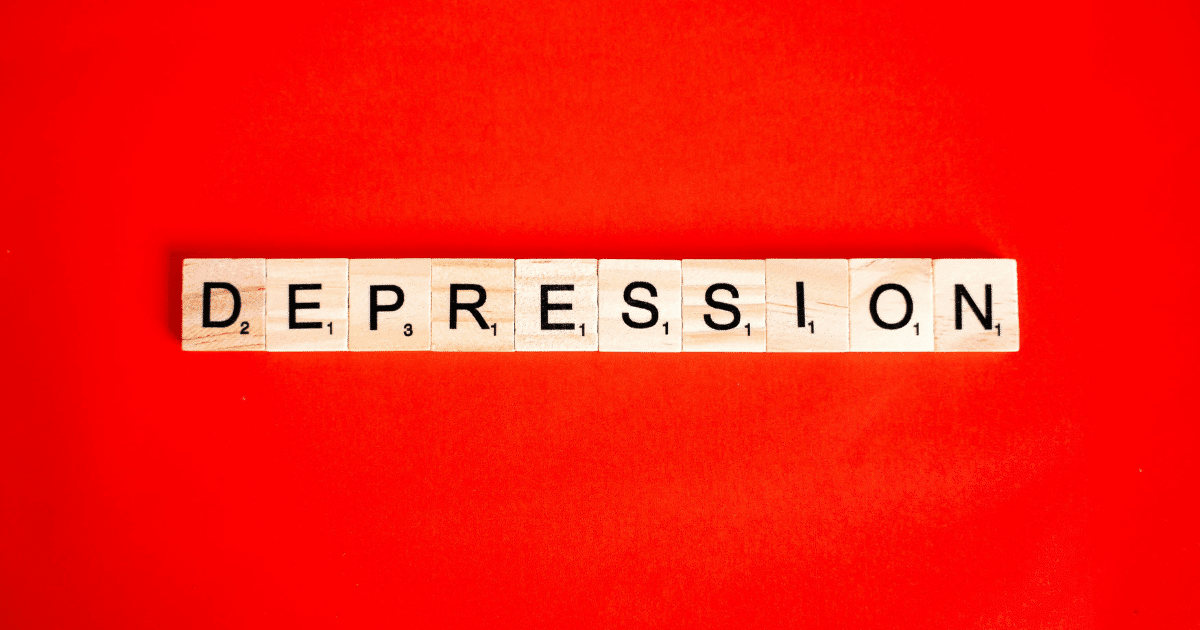Can depression coexist with anorexia? Absolutely! And more often than people realize. These two issues frequently appear together and sometimes feed on one another. According to research, between 50% to 75% of patients affected by anorexia nervosa also have major depression. That’s not a mere coincidence – this is a scary convergence of mental health issues that deserves proper attention and a specific approach to treatment.
Anorexia nervosa is one of the most serious eating disorders, which is associated with extreme food restrictions, disturbed body image, and an irrational fear of becoming overweight. While at this, the symptoms of depression, such as low self-esteem, hopelessness, fatigue, and isolation from social situations, quietly trigger disordered eating trends. When these two psychological disorders are comorbid, it makes for a brutal, toxic cycle of emotional harm and physical danger that is very hard to escape from on one’s own.
This blog examines how and why these co-occurring conditions tend to manifest themselves together, what to look out for, and how a dual diagnosis approach can point the way towards recovery.
Understanding the Complex Coexistence of Depression and Anorexia
Depression and anorexia are common bedfellows, but an unholy one that manifests itself in devastating physical and mental ways. While each of the disorders by itself is serious, the combination of them exacerbates emotional pain, slows recovery, and enhances the danger of self-harm or suicide. Both conditions thrive on each other – depression can cause harmful eating habits as a need for control or punishment, while anorexia malnutrition can exacerbate an affected person’s mood disorders and perceptions.
It’s not only a matter of how we feel. Brain chemistry, a history of trauma, perfectionism, and societal pressure are some of the contributing factors to how these disorders emerge and overlap.

Can Depression Coexist With Anorexia?
There is a possibility of depression co-existing with anorexia, and it does in most cases. From studies, it has been found that high numbers of patients with anorexia nervosa are also clinically depressed, thus contributing to more severe symptoms and higher risks of relapses.
The limited recovery and undressed, unhealed emotional core wounds may result from treating only one of the conditions without considering the other one. That is why long-term healing requires integrated care or dual diagnosis treatment. It is when the two disorders are understood and treated together that people can have a better chance of reclaiming their mental health and consequently their lives.
Recognizing the Symptoms of Dual Diagnosis
In the case of coexistence of depression and anorexia, depressive and anorectic components may hide each other or, on the contrary, boost each other and make it more difficult to understand what really occurs in that person. In this case, a dual diagnosis is a diagnosis of two or more mental disorders that occur simultaneously (anorexia nervosa and clinical depression). Since the emotional, behavioral, and physical symptoms tend to overlap, parents, caregivers, and even the individuals themselves must identify the different patterns that indicate the presence of the two conditions.
A lack of recognition of the signs of dual diagnosis may put the much-needed treatment at risk and subsequently cause further mental health deterioration, social isolation, and even deadly outcomes. It is the first step toward getting appropriate support to recognize the red flags.
Psychological Red Flags to Watch For
Some significant psychological symptoms that might be a sign of both depression and anorexia include the following:
- Constant feelings of worthlessness or inadequacy.
- Extreme fear of getting fat while being underweight.
- Lack of interest in activities that are enjoyed (anhedonia)
- Extreme perfectionism and self-criticism.
- Prolonged tiredness or lack of energy even without any physical effort.
- Obsession about food, calories, and body image.
- Social seclusion and disengagement from one’s family and friends.
- A negative body image in combination with a feeling of hopelessness towards the future.
- Mood changes, irritability, blankness in the soul.
- Difficulty concentrating or making decisions.
- Self-harm, talking about suicide otherwise.
How Depression and Anorexia Impact Mental and Physical Health
When depression and anorexia coexist, their consequences radiate throughout most spheres of a person’s life. Mentally, they can make shame, loneliness, and despair even worse. Physically, malnourishment occurs in anorexia, and the energy to seek help may be depleted through depression. These conditions taken together can form the vicious cycle that harms the body and the mind.
Below is a breakdown of the impact of each of the conditions on mental and physical health.
| Health Area | Depression Effects | Anorexia Effects |
| Mood & Emotions | Persistent sadness, irritability, hopelessness | Anxiety, mood swings, and emotional numbness |
| Cognitive Function | Difficulty concentrating, indecisiveness | Obsessive thoughts about food and body image |
| Energy Levels | Fatigue, low motivation | Physical exhaustion from calorie restriction |
| Sleep | Insomnia or excessive sleeping | Insomnia due to starvation or obsessive routines |
| Appetite | Loss of appetite or emotional eating | Extreme restriction, fear of eating |
| Body Weight | Weight fluctuations due to eating patterns | Significant and dangerous weight loss |
| Immune System | Weakened immune response | Increased risk of illness from nutrient deficiencies |
| Heart Health | Elevated risk of heart issues due to inactivity | Irregular heartbeat, low blood pressure |
| Social Life | Isolation, disinterest in relationships | Withdrawal to hide disordered behaviors |
| Risk of Suicide | Increased risk, especially if untreated | Extremely high when combined with anorexia |
Why Treating Co-Occurring Conditions Is So Challenging
Therapeutic intervention of co-conditions such as depression and anorexia is in its own way complex, because these disorders influence each other in ways that impede the recovery process of an individual from standing up independently.
For instance, the malnourishment of the body due to anorexia may cause damage to the brain, thus complicating the ability to react to the therapy or antidepressants. At the same time, emotional numbing and fatigue associated with depression may make it hard to do nutrition counseling or behavioral change. Many such people may also refuse to accept one condition and accept the other one, which will delay comprehensive treatment.
Medical care is goal-driven and requires a smooth transition of efforts from the physical to the mental well-being of a patient, frequently involving a combination of medical, nutritional, and psychological treatment.
Effective Strategies for Managing Depression and Anorexia Together
An integrated treatment plan, which is personalized to the sufferer’s needs and specific to both disorders, is highly necessary. Here are some proven strategies:
- Eating disorder and mood disorder dual diagnosis treatment programs, whereby the eating disorders and the mood disorders are treated at one go.
- Individual treatment (e.g., Cognitive Behavioral therapy (CBT) or Dialectical Behavior therapy (DBT) targeting both depressive thinking and eating disordered behavior.
- Nutritional counseling in order to restore physical health and mood stabilization through proper nourishment.
- Medication management (including antidepressants), if indicated, and very closely monitored.
- Group therapy and support groups promote connection as well as discourage feelings of isolation.
- Family-oriented therapy to mend broken relationships and establish a good support system.
- Mindfulness and stress-reducing practices such as yoga, meditation, or journaling to enhance emotional regulation.
- Body image and mental health education are aimed at developing an understanding and preventing relapse.
The Importance of Strong Support Systems in Recovery
Getting better from co-occurring disorders such as depression or anorexia is not all about therapy and treatment plans – it also involves the people in your corner. A robust support system involving family, friends, peers, and caring professionals can have a major impact on outcomes by providing support, accountability, and emotional safety. Whether it is going to appointments with a loved one, helping to maintain routines, lending an ear without criticism, support is a vital step in avoiding relapse and developing long-term resilience.
Open, compassionate communication, regular check-ins, and establishing a no-shame environment can make a significant difference in assisting a person to not feel so alone and hopeless on his or her recovery journey.

Personalized Mental Health Approaches at Hillside Horizon for Teens
At Hillside Horizon for Teens, we realize that when it comes to dual diagnoses such as depression and anorexia, there is no one-size-fits-all solution. That is why we focus on personalized and integrative healing plans that take into consideration the emotional and physical aspects of the healing. From evidence-based therapies to nutritional support, family counseling to continuous relapse prevention, our team is with you on every step of the journey with professionalism and compassion.
FAQs
What are the common psychological symptoms of depression and anorexia as coexisting conditions in dual diagnosis?
Depression and anorexia patients are usually characterized by extreme self-criticism presentations, low self-worth, overt preoccupations with weight or food, and constant sadness or hopelessness. These symptoms may come together and intensify each other, and therefore, the early detection is of the essence.
How does mental health comorbidity influence treatment options for individuals with anorexia and depression?
When anorexia and depression coincide, treatment requires a simultaneous solution to both. This treatment is usually a combination of therapy, medication, and nutritional rehabilitation, depending on an individual’s requirements.
What role does emotional regulation play in managing dual diagnosis of eating disorders and depression?
Borderline personality disorder, reckless eating disorder, and depressive episodes can be fueled by poor emotional regulation, as it may promote impulsivity and withdrawal. Dual diagnosis treatment that involves teaching healthier coping mechanisms can considerably improve the condition of dual diagnosis.
How can nutritional deficiency impact the mental health of someone with both depression and an eating disorder?
Malnutrition can exacerbate depression since it disturbs brain chemistry, augments tiredness, and affects attention. Repairing nutritional health is an important aspect of enhancing emotional stability and mental function.
What are effective treatment options for addressing the comorbidity of depression and anorexia?
Effective treatment involves integrated care via dual diagnosis programs, treatment in the form of therapy (CBT or DBT), nutritional support, and sometimes medicine. An integrated approach focusing on both disorders enhances the prospects of long-term recovery.




